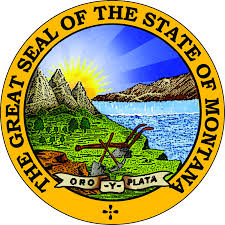The Treasure State: From Oro y Plata to Character and Creativity
By: John A. Baden, Ph.D.Posted on August 27, 2016 FREE Insights
The Montana Territory adopted its State Seal in 1865. When joining the Union in 1889 it kept the original content and design. The motto, Oro y Plata, gold and silver, indicated early sources of Montana’s wealth and political power. In 1891 there was a move to create an entirely new seal but these efforts failed. Mining retained its power.
Now however is a good time for our state seal to acknowledge fundamental changes in the sources of wealth and wellbeing of Montanans. Today key resources are creativity and character. I suggest our gubernatorial candidates recognize this new reality and propose including them in our state seal. Let’s review the context of my proposal.

Copper soon followed the mining of gold and silver. It peaked in 1917 with Butte having the world’s largest copper mine. Silver was a byproduct of copper smelting. Today there are at least eight times as many manicurists and hair stylists in Montana as gold, silver, and copper miners combined. Coal employs a few thousand well-paid miners in Eastern Montana’s Power River Formation but their situation is endangered by fears of climate change.
Farming, ranching, and logging followed mining and remain important to its economy. Today tourism is second to agriculture. In Western Montana it drives much construction. Why? Tourists visit and discover nice, friendly, helpful people of good character. These qualities complement natural attractions. These qualities are increasingly important as anxiety rises in large urban areas.
Further, technology has dramatically reduced the cost of distance, long the state’s second disadvantage after cold. Here it really is getting warmer, a net benefit. In sum, many find the area attractive, a promising place to live. They buy or build: This is the new boom.
A few newcomers are buying a seat on a culturally homogenous lifeboat. As sociologist Robert Putman wrote a decade ago, social trust is a great benefit that decreases with diversity. Numerous subsequent academic studies confirm this finding and lament the consequences. Hence when making decisions affecting the well-being of loved ones, experience and data normally trump politically correct behavior.
Many Americans publically lament the absence of diversity but select against it. Propinquity dominates decisions about residential location: What will be the prevailing features of the neighborhood? What kinds of people will I bump into—and what happens when I do? Here are two telling examples.
Ramona recently dropped a roll of 100 postage stamps, nearly $50 worth, in the parking lot of the Gallatin Gateway Post Office. A stranger turned them in to the postmistress. Last week I left my iPad lying in the Bozeman Staples. It had my name and phone number on it, and some stranger took it to the store manager. Locals are not surprised by these outcomes.
Such stories circulate and people develop a sense of the residents’ character. Hence, Montana is recognized as a good, safe, comfortable place to live. This virtuous circle is independent of mineral resources.
Most people know whom they want to avoid and discriminate accordingly. While a few bad ones surely exist, only the paranoid fear Mennonites, Mormons, or Methodist neighbors. All but doctrinaire atheists prefer communities where most people are religious but no religion dominates. This is today’s Montana.
As large urban areas become more congested and uncomfortable, Montana towns become more appealing. Bozeman is the Goldilocks location while six or eight others, some like White Fish six hours distance, are close sisters. All are magnets for creative people, those with high human capital. That is the new source of Montana’s wealth.
Political leaders can’t create copper, gold, or silver. They can however foster high human capital in two ways. First, improve the already good independent and government schools. Next, they can make the state more attractive to those with high human capital. The most obvious way is encouraging promising graduates to remain in the state. This requires good jobs. Creating them becomes easier for quality attracts quality. This is the path to improved well-being and wealth.
I’m not involved in politics and neither candidate has solicited my proposals. However, I suggest one to feature. Change Montana’s motto from “Oro y Plata” to “Character and Creativity” as the hallmarks of modern entrepreneurial Montana.
Unlike most development schemes this is financially costless. It demonstrates the candidate’s understanding of the engines of prosperity. It also recognizes attractive qualities of the state that complement its widely known ecological, environmental, and geological features. Mountains and minds come together.
The candidates should acknowledge the historical importance of gold and silver. It’s entertaining--and aside from mine waste, it’s harmless at this historical remove. Also, while none of the mining fortunes remain, some have left attractions scattered across the state.
Next note how the “resource curse” of concentrated wealth corrupted the politics of early Montana. This is the normal process on every continent. Compared to mining, the wealth generated by creativity becomes well disbursed and has few direct environmental costs. It also has less potential for political corruption and rent seeking.
Assuming they accept my suggestion, what should we do with the Great Seal of the State of Montana? It’s really quite glorious and depicts our history. I suggest leaving the artwork alone and simple modify the motto to say: “The Treasure State: Character and Creativity”.
f.n. It’s no accident Brigham Young kept the Mormons away from mining. It was generally reserved for the gentiles.

